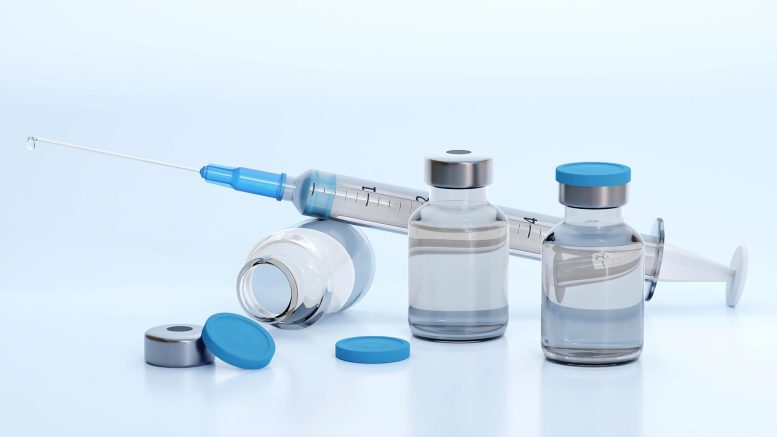Longer Interval Between COVID-19 Vaccines Generates Up to 9x As Many Protective
By

New research has shown that a longer interval between primary
To find out factors affecting antibody responses following Pfizer/BioNTech Covid vaccination, Dr. Ashley Otter and colleagues at the UK Health Security Agency (UKHSA) measured antibody levels in blood samples taken from almost 6,000 healthcare workers from across the UK enrolled within the UK’s SIREN study (
When analysing dosing intervals, it was found that longer dosing interval was associated with up antibody levels that were up to nine times higher in naïve participants (>2 and <4 weeks: 1,268.72 (1,043.25-1,542.91) and >10 weeks 11,479.73 (10,742.78-12,267.24), p=<0.0001) with a more pronounced effect observed in younger participants.
Dosing interval didn’t affect antibody levels in those with previous infection. However, a longer interval between infection and vaccination was linked to higher antibody levels.
Those who had their first dose of the vaccine eight months after an infection had antibody levels seven times higher than those who were vaccinated three months after infection, with a plateau after eight months, suggesting that eight months after primary infection may be an optimum time to receive the first vaccine in those with prior infection.
However, the analysis shows that regardless of the timing between infection and vaccination, all individuals mount a very high antibody response after dose 2.
In addition, female participants and those from an ethnic minority were associated with significantly higher antibody titres, whilst immunosuppression was associated with significantly lower post-vaccination antibody responses.
Dr. Otter says: “This study shows that a longer time between vaccine dose 1 and dose 2 results in higher antibody responses in naïve participants, which strongly supports the decision by JCVI and the UK government to lengthen the interval between vaccine doses.
“We’ve also shown that in those with previous infection, timing between exposure and vaccination plays a critical role in post-vaccination antibody responses. However, further research is needed to determine whether these higher antibody levels provide greater protection against COVID-19 disease and how this longer dosing interval may affect booster responses.”
The analysis was funded by the UKHSA and the UK Department of Health and Social Care and was part of the SIREN study, the world’s biggest real-word study into COVID-19 antibodies.
Meeting: The European Congress of Clinical Microbiology & Infectious Diseases (ECCMID 2022)
Read More:Longer Interval Between COVID-19 Vaccines Generates Up to 9x As Many Protective
